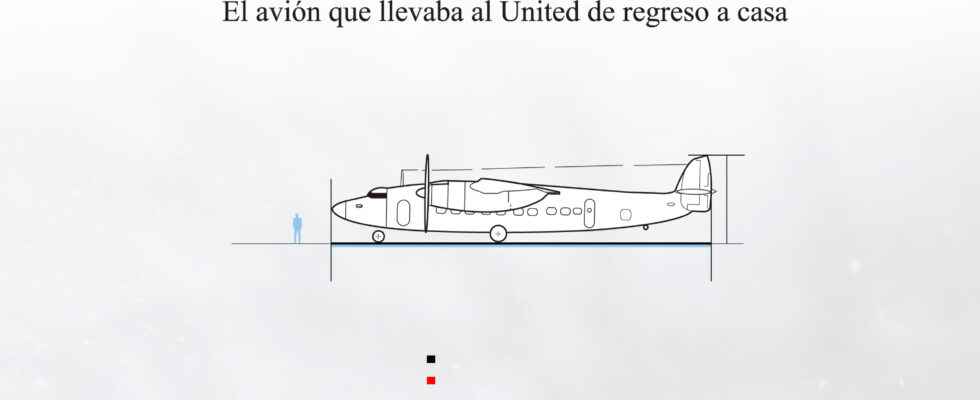The football world was shocked by the Manchester United expedition plane crash in Munich. It happened on Thursday, February 6, 1958, at four minutes past three in the afternoon. The Manchester club was returning from playing the quarterfinals of the European Cup in the 1957-1958 season against Red Star (3-3, in Belgrade; after the 2-1 in favor of the red devils In England). The United expedition stopped in the German city to refuel. The day was miserable in Munich with temperatures close to zero degrees and sleet. The runways at Riem Airport, Munich’s international airfield closed in 1992, were covered in snow.
On February 6, 1958, the Manchester United squad
returned to England after playing in the quarterfinals of the European Cup in view of
the Red Star. British European Airways Flight 609 from Belgrade
it had landed at Munich airport to refuel.
The Airspeed AS.57 Ambassador, known as ‘Elizabethan’, it was a commercial plane
twin-engine manufactured by the British company Airspeed Limited between 1947 and 1953.
Airspeed AS.57 Ambassador
deceased
survivors
Breakdown of fatalities
3
members of the
coaching staff
2
members of the
crew
Airport
of Riem
(Munich)

On February 6, 1958
manchester united squad
returned to England after playing
Cup quarterfinals
of Europe against Red Star.
Flight 609 of the British
European Airways from
from Belgrade had landed
at munich airport
to refuel.
the plane he was carrying
United back home
The Airspeed AS.57 Ambassador,
known as ‘Elizabethan’,
It was a twin-engine commercial airliner.
manufactured by the company
British Airspeed Limited
between 1947 and 1953.
Airspeed AS.57 Ambassador
deceased
survivors
Airport
of Riem
(Munich)
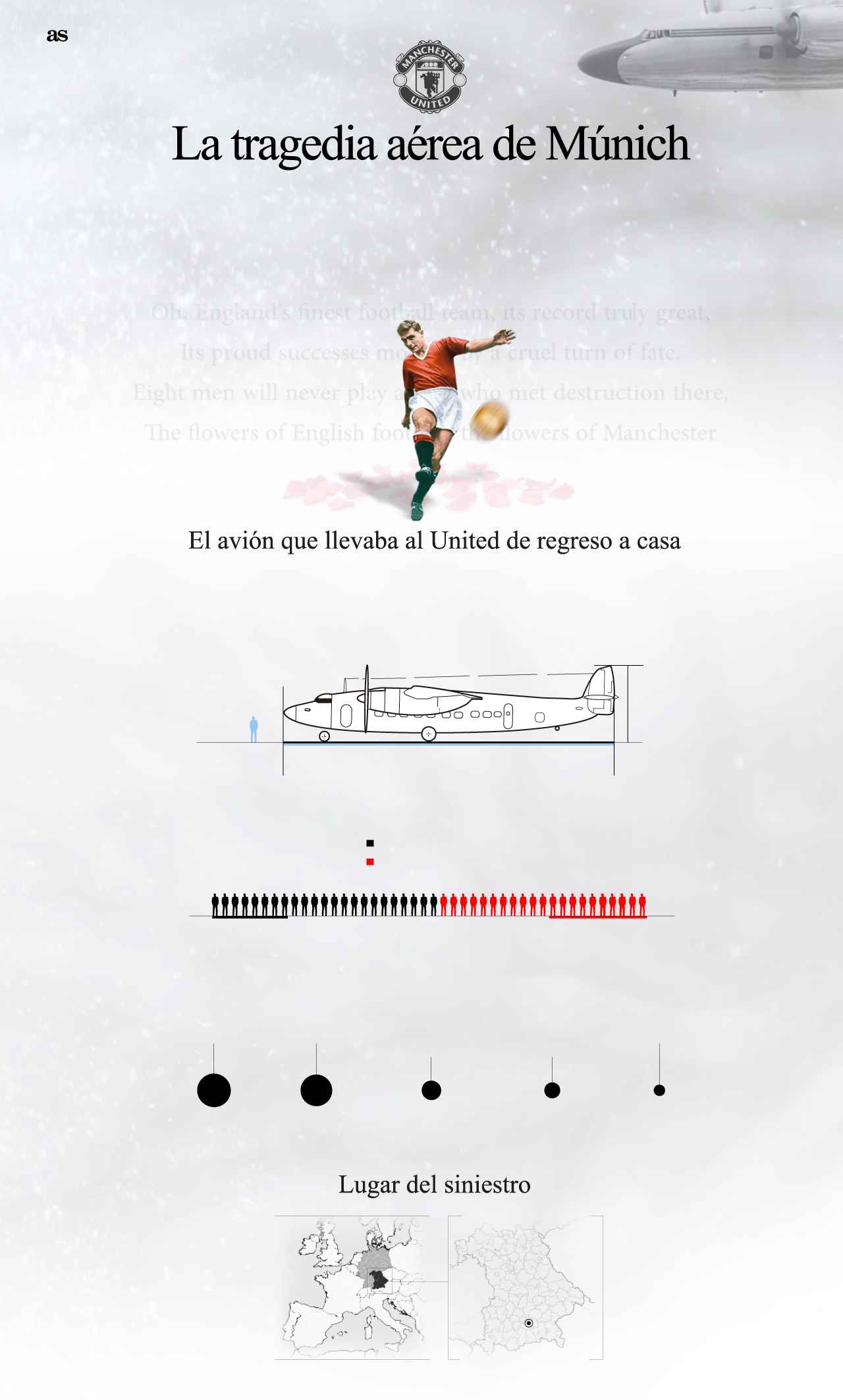
On February 6, 1958, the Manchester United squad
returned to England after playing in the quarterfinals of the European Cup in view of
the Red Star. British European Airways Flight 609 from Belgrade
it had landed at Munich airport to refuel.
The Airspeed AS.57 Ambassador, known as ‘Elizabethan’, it was a commercial plane
twin-engine manufactured by the British company Airspeed Limited between 1947 and 1953.
Airspeed AS.57 Ambassador
deceased
survivors
Breakdown of fatalities
3
members of the
coaching staff
2
members of the
crew
Airport
of Riem
(Munich)
Manchester United that season was a serious candidate to win all the titles. With Scottish coach Matt Busby at the helm, the ‘Red Devils’ had an average age of 22 years. The illusion ran through the club with the expectation of having a golden generation in the making. The experienced 36-year-old British pilot James Thain and his co-pilot Ken Rayment had detected an excess of power in one of the engines, which is why the aircraft had two failed takeoffs prior to the catastrophe. Everything seemed to be in order, although no one had noticed the presence of ice on the wings of the device, since no operator had cleaned them that morning. An oversight that caused the catastrophe. With the go-ahead from the control tower, the aircraft decided to take off. The pilot and co-pilot had switched seats, a practice prohibited by company policy, another fatal mistake.
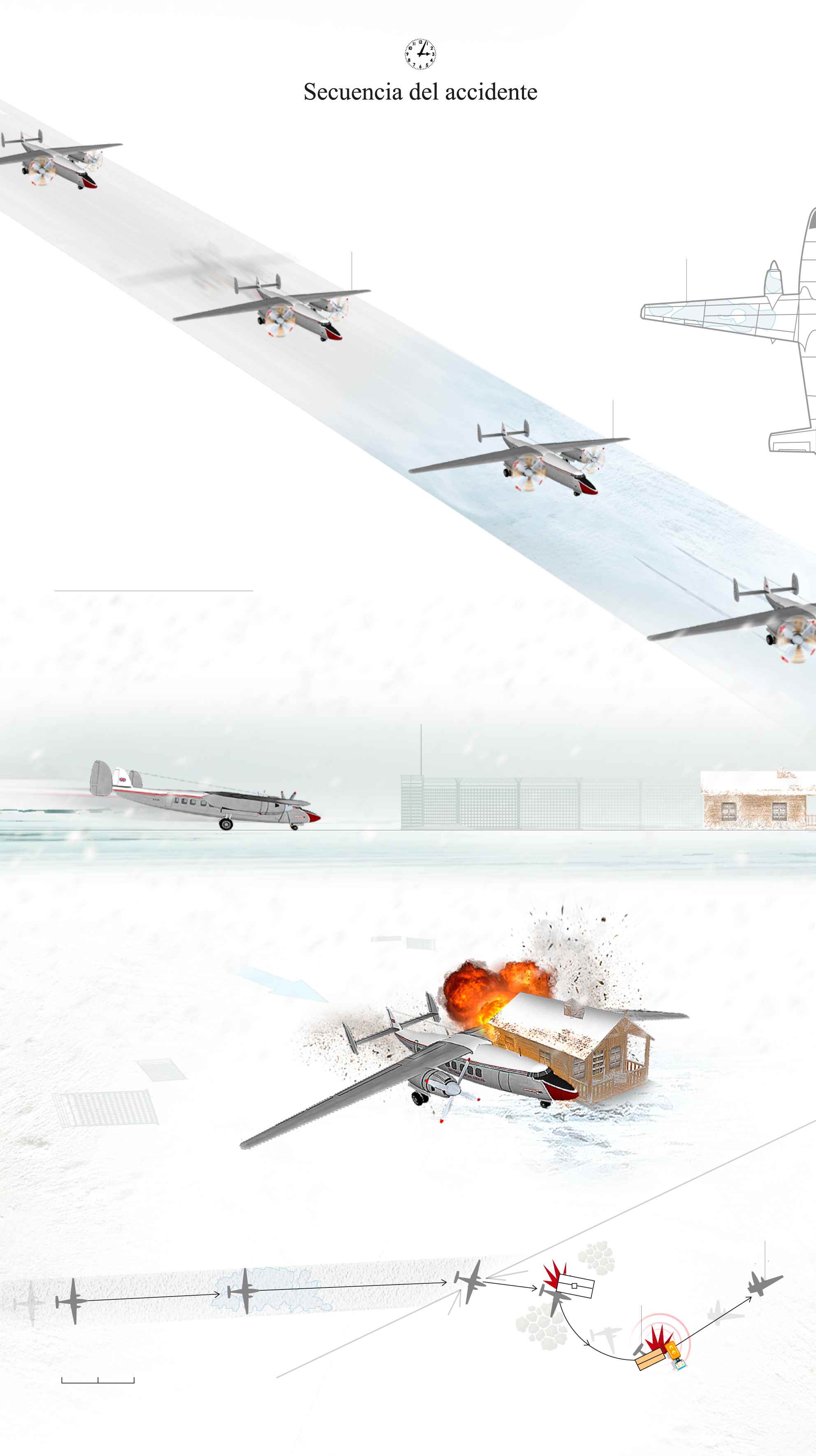
After two failed maneuvers, the experienced captain
James Thain initiates takeoff for the last time. The evil ones
track conditions precipitate the fatal outcome.
Speed:
119 knots
(220km/h)
the wings of the plane
they had ice during
the takeoff maneuver
Speed:
104 knots
(194km/h)
1
The Airspeed covers the first
meters of track touching a speed
of 119 knots (220 km/h), but
the machine loses speed due to
to the sleet and, far from rising,
rides on a layer of ice and mud
covering the final stretch of the trail.
2
The plane leaves a braking track of 50 meters,
but the pilot is unable to get hold of the heading
of the ship, which rushes inexorably against
the fence that surrounds the perimeter of the airport.
3
There is a tremendous collision with
one of the houses located on the grounds
adjacent to the airport. The remains of the
fuselage are fired several meters
and the fire of a ship run over by
the body of the plane blows up the tank
of fuel from a parked truck.
The impact destroys
the left engine
‘Elizabethan’
The destruction caused by the plane over 450 meters
According to the regulations of the time, the house against which the artifact collides
it was located at the correct distance from the airport runway.
Explodes
The deposit
of a truck

The Airspeed AS.57 Ambassador,
known as ‘Elizabethan’,
It was a twin-engine commercial airliner.
manufactured by the company
British Airspeed Limited
between 1947 and 1953.
1
The Airspeed covers the first
meters of track touching a speed
of 119 knots (220 km/h), but
the machine loses speed due to
to the sleet and, far from rising,
rides on a layer of ice and mud
covering the final stretch of the trail.
2
The plane leaves a skid mark
50 meters, but the pilot is unable to
take control of the course of the ship, which HE
rushes inexorably against the fence
surrounding the perimeter of the airport.
The impact destroys
the left engine
‘Elizabethan’
3
There is a tremendous collision with
one of the houses located on the grounds
adjacent to the airport. The remains of the
fuselage are fired several meters
and the fire of a ship run over by
the body of the plane blows up the tank
of fuel from a parked truck.
The damage it causes
the plane along 450 meters
According to the regulations of the time, the house
against which the artifact collides
was located at a correct distance
with respect to the airport runway.
Explodes
The deposit
of a truck
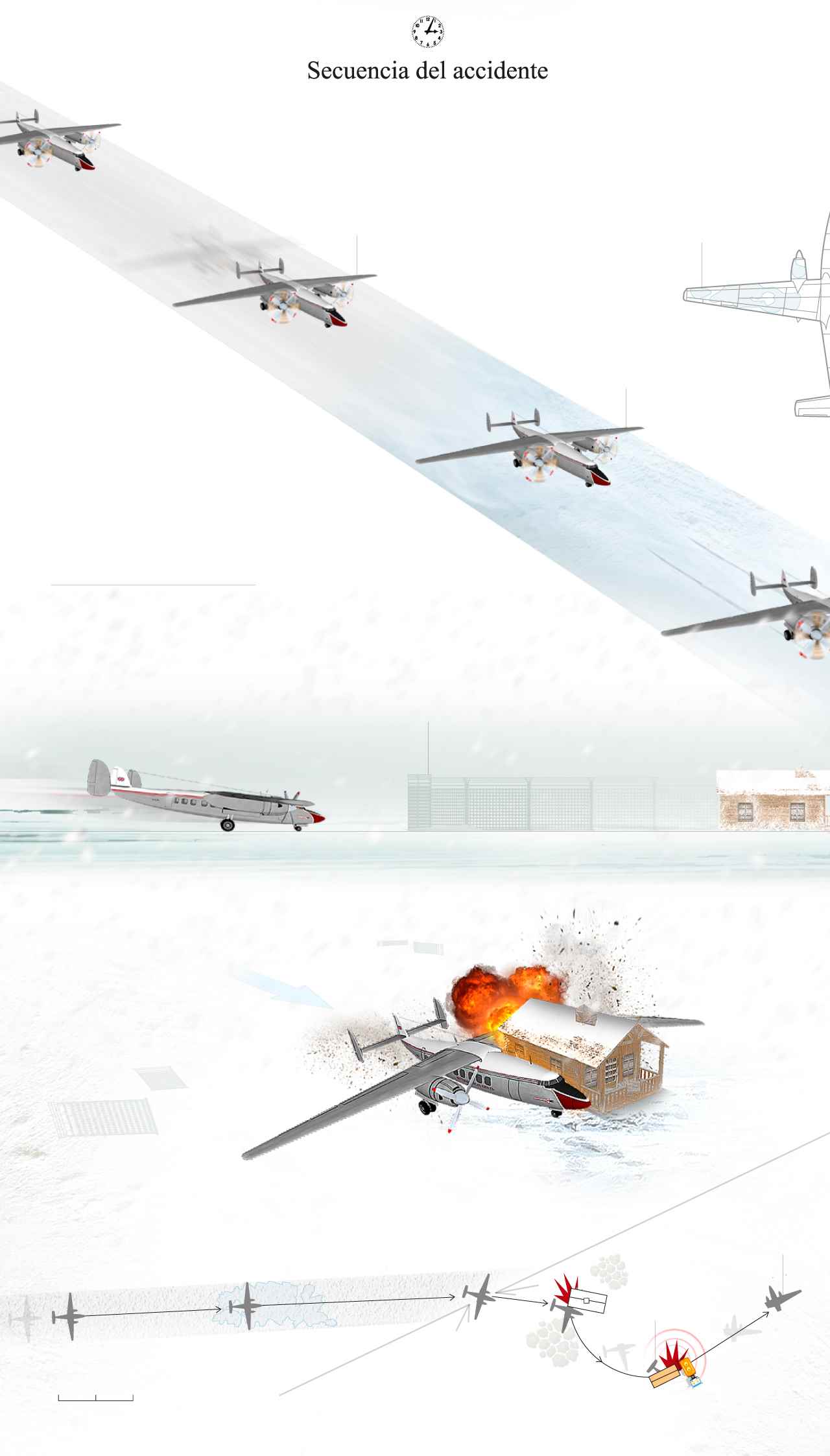
After two failed maneuvers, the experienced captain
James Thain initiates takeoff for the last time. The evil ones
track conditions precipitate the fatal outcome.
Speed:
119 knots
(220km/h)
the wings of the plane
they had ice during
the takeoff maneuver
Speed:
104 knots
(194km/h)
1
The Airspeed covers the first
meters of track touching a speed
of 119 knots (220 km/h), but
the machine loses speed due to
to the sleet and, far from rising,
rides on a layer of ice and mud
covering the final stretch of the trail.
2
The plane leaves a braking track of 50 meters,
but the pilot is unable to get hold of the heading
of the ship, which rushes inexorably against
the fence that surrounds the perimeter of the airport.
3
There is a tremendous collision with
one of the houses located on the grounds
adjacent to the airport. The remains of the
fuselage are fired several meters
and the fire of a ship run over by
the body of the plane blows up the tank
of fuel from a parked truck.
The impact destroys
the left engine
‘Elizabethan’
The destruction caused by the plane over 450 meters
According to the regulations of the time, the house against which the artifact collides
it was located at the correct distance from the airport runway.
Explodes
The deposit
of a truck
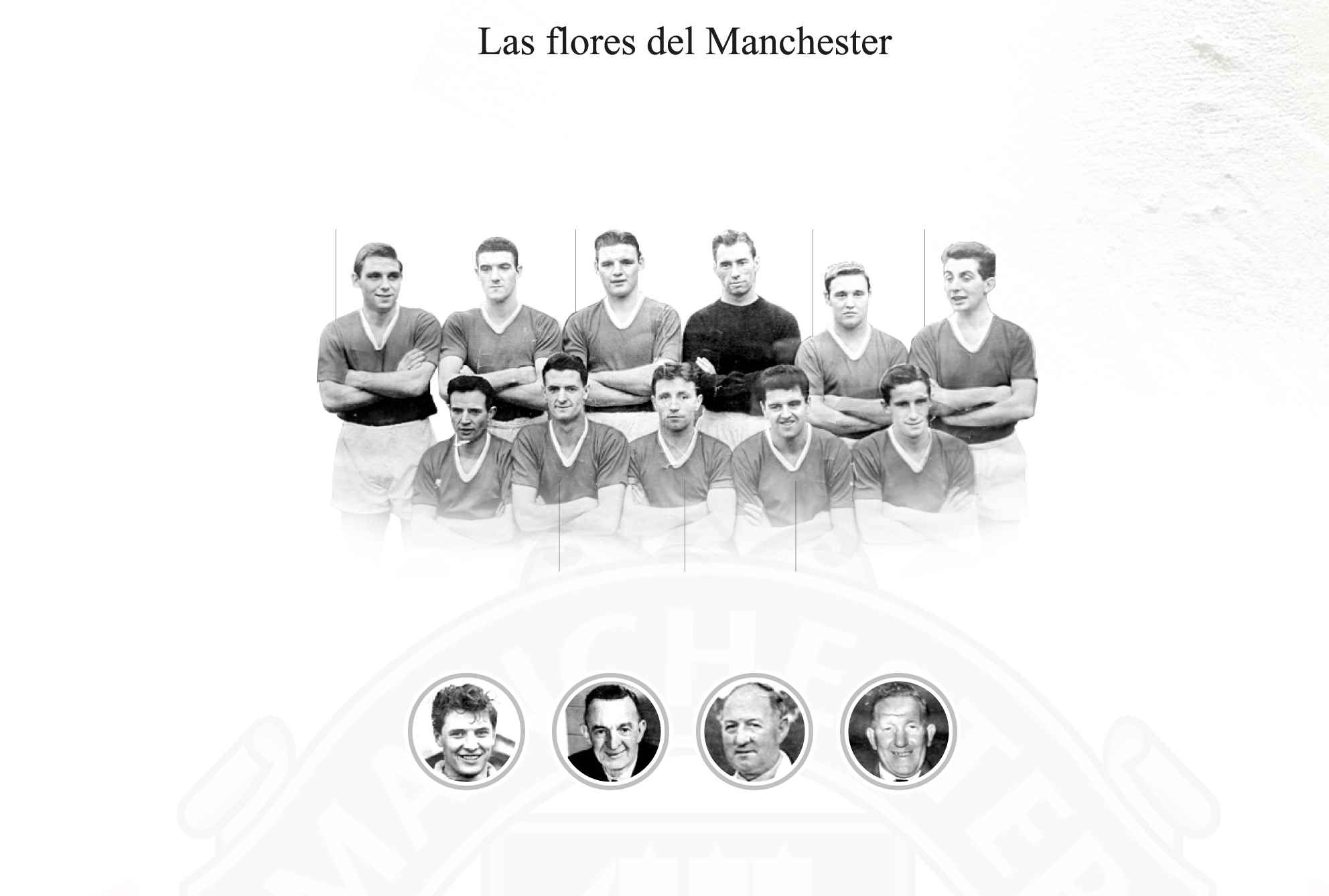
Seven footballers were killed instantly and Duncan Edwards, one of the biggest promises
from the country, He died of his injuries 15 days after the accident, at the age of 21.
Walter Crickmer
(secretary
of the club)
Tom Curry
(second
coach)
bert whalley
(responsible
technical)
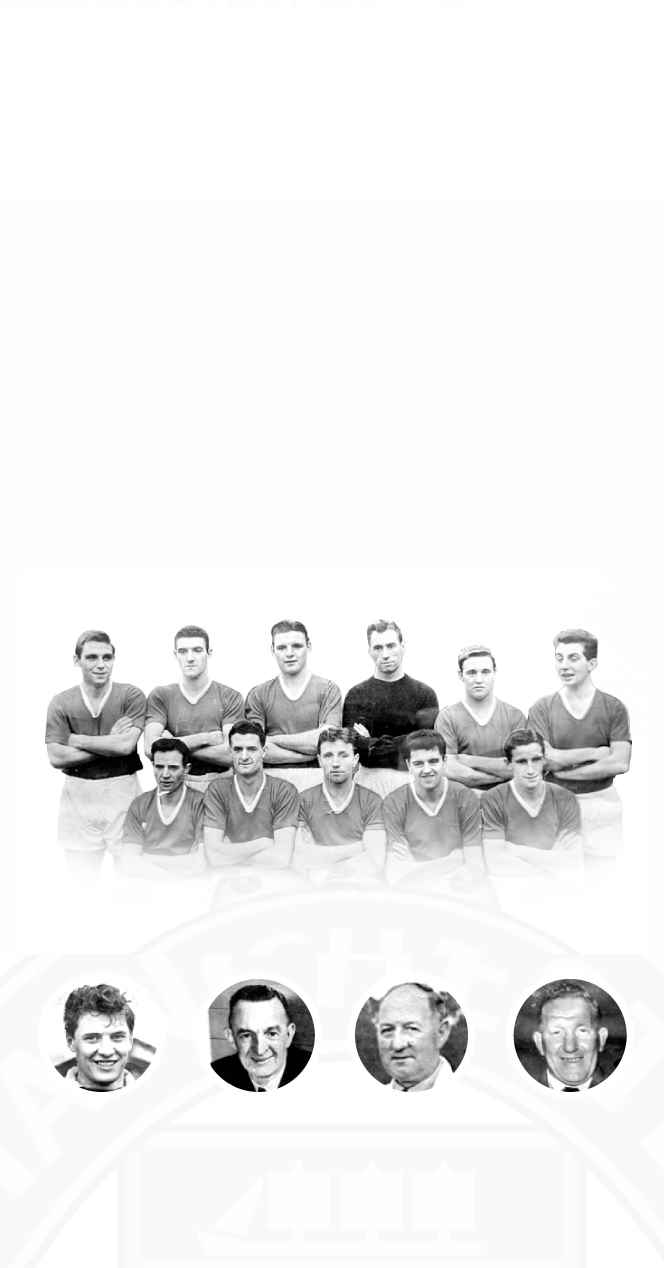
The flowers of Manchester
Seven footballers died
on the spot and Duncan Edwards,
one of the biggest promises
of the country, died from
the wounds 15 days later
of the accident, at the age
21 years old.
Walter
crickmer
(secretary
of the club)
Tom
Curry
(second
coach)
bert
whalley
(responsible
technical)
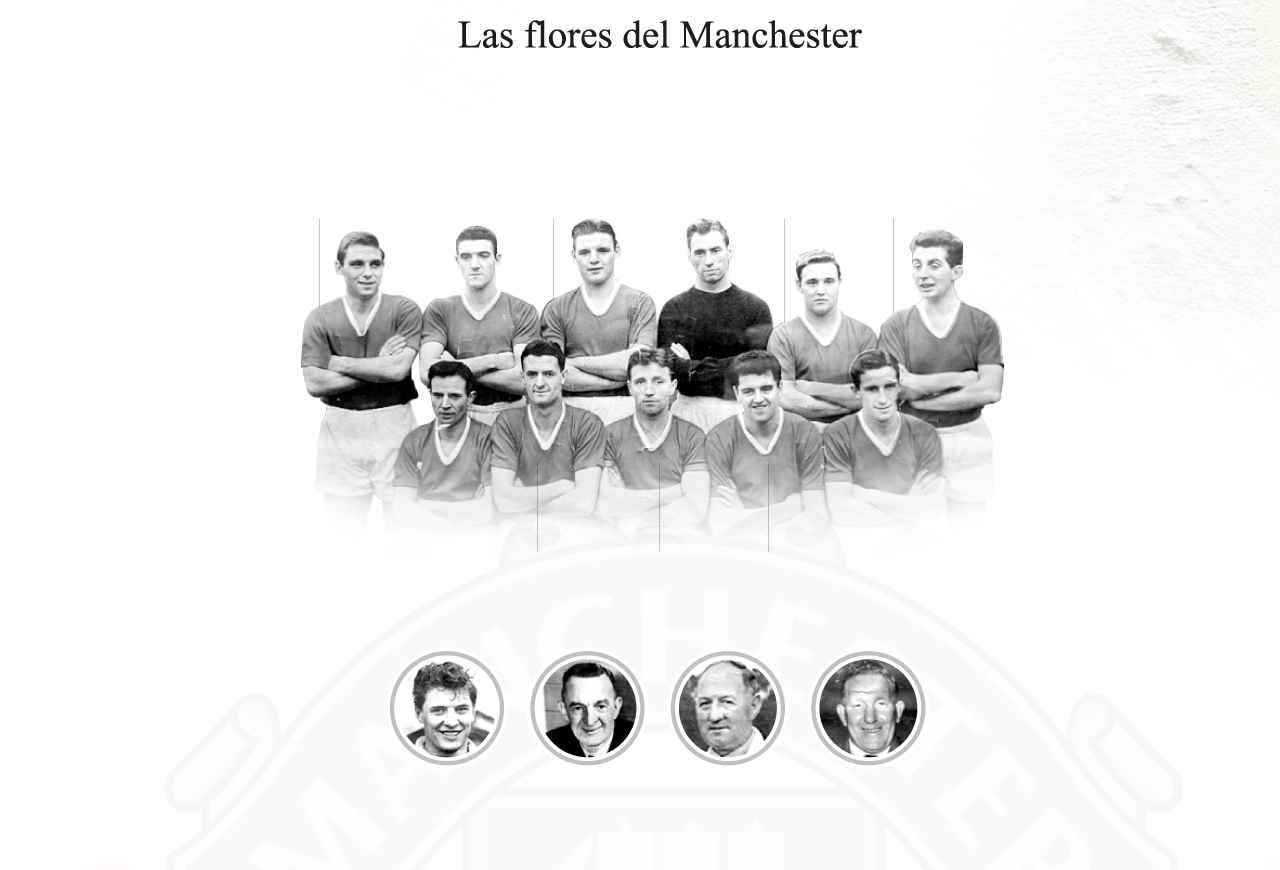
Seven footballers were killed instantly and Duncan Edwards, one of the biggest promises
from the country, He died of his injuries 15 days after the accident, at the age of 21.
Walter Crickmer
(secretary
of the club)
Tom Curry
(second
coach)
bert whalley
(responsible
technical)
The Airspeed Ambassador on reaching the last stretch of the road lost speed and went through a huge layer of ice and mud. Without being able to rise and with an insufficient stretch of runway, the pilot tried to brake the aircraft for 50 metres, but he was unable to get hold of the plane that ran over the perimeter fence of the airport. Later, the impact against a nearby house displaced the fuselage of the ‘Elizabethan’ several meters, causing the explosion of a fuel tank of a truck parked in the area. The fatal mishap caused the death of 23 people.
Of the 18 Manchester players who were traveling, seven died on the spot, and 15 days after the accident, from their injuries also fThe young 21-year-old midfielder Duncan Edwards passed away, of whom it has been said that due to his qualities he was called to be one of the best players in history. Among the survivors were the coach Matt Busby, Bobby Charlton, Jackie Blanchflower, Denis Viollet… Truly unharmed, only two survived, the Northern Irish goalkeeper Henry Harry Gregg and the defender Bill Foulkes.
fate wanted it Ten years after the tragedy in Munich, under the command of Matt Busby, the same coach who nearly died in the accident, United managed to win the European Cup. Today, 65 years after the air disaster, the question still lingers as to how far the ‘Busby Babes’ would have gone if it weren’t for that fatal outcome.
